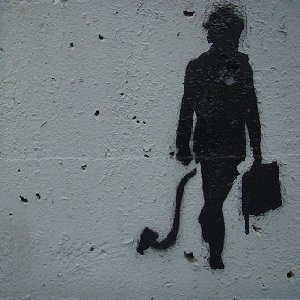Leaders in business and government know that a manageable degree of conflict between people in groups helps to mitigate groupthink in team decision-making. Groupthink results from self-censorship that stifles disagreement within teams, so the free expression of alternative views can improve the quality of team decisions. Thus, leaders have developed ways to encourage beneficial task-focused conflict, often through assigning a team member to play the role of devil’s advocate. While research shows that this tactic improves group decision outcomes, until recently we did not know the impact task conflict has on those who engage in it: the devil’s advocate and their targets whose ideas are being criticized.
Researchers examined the physical and psychological effects of providing and receiving dissenting feedback through devil’s advocacy, comparing them to a team member not involved in the conflict. The devil’s advocates showed less cardiac distress and thought of the situation as a challenge, but one they could cope with. Conversely, the targets of dissent showed a cardiac pattern with detrimental health effects when chronic, thought of the situation as threatening, and felt less able to cope with it.
Furthermore, both the devil’s advocates and their targets experienced threat to fundamental psychological needs. The consequences were more severe for targets of negative feedback; they experienced a threat to their self-esteem, belonging, need for control and a meaningful existence, all of which are associated with poorer health and well-being. On the other hand, devil’s advocates were concerned with being accepted (i.e. belonging) and self-esteem.
The presence of conflict is a catalyst for growth in organizations as well as a threat to those directly involved, particularly the recipients of negative feedback. While inducing task-focused conflict in a team may be productive, leaders would benefit from understanding these considerable tradeoffs of dissent. Interventions such as ensuring that the same team member is not repeatedly given negative feedback or coaching receivers of negative feedback to re-frame the experience in positive terms may diminish the detrimental effects of negative social evaluation.
Reference:Jamieson, J. P., Valdesolo, P., & Peters, B. J. (2014). Sympathy for the devil? The physiological and psychological effects of being an agent (and target) of dissent during intragroup conflict. Journal of Experimental Social Psychology, 55, 221-227.
Photo courtesy of Flickr Creative Commons user Shallom Johnson
